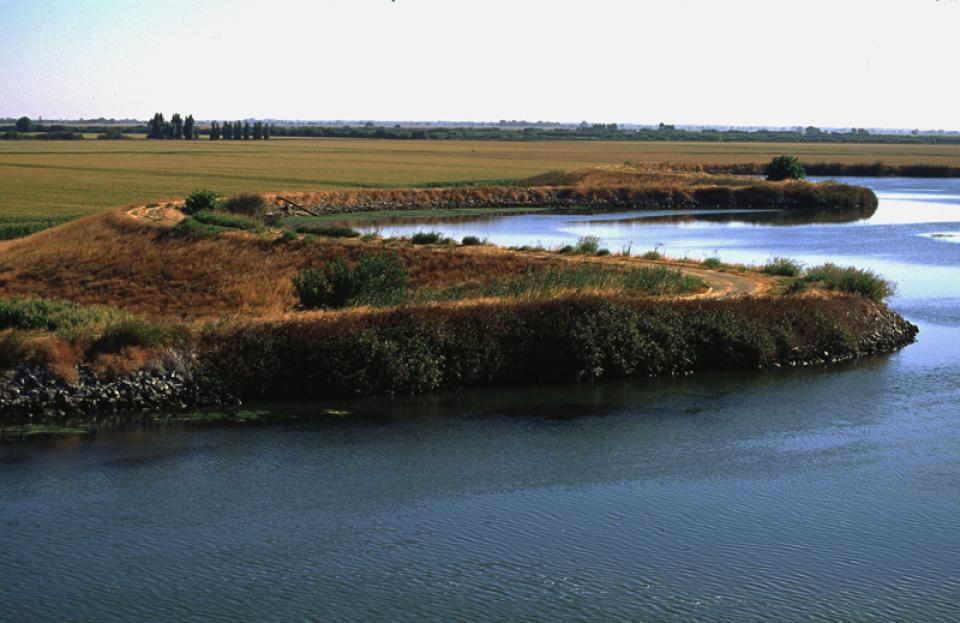Sacramento-San Joaquin Delta Litigation
For more than 30 years, the Sacramento-San Joaquin Delta has been embroiled in continuing controversy over the struggle to restore the faltering ecosystem while maintaining its role as the hub of the state’s water supply.
Lawsuits and counter lawsuits have been filed, while environmentalists and water users continue to clash over the amount of water that can be safely exported from the region.
Adding fuel to the fire, the U.S. Fish and Wildlife Service issued a biological opinion in 2005 on the effects of the coordinated operations of the state and federal projects on Delta smelt. In the opinion, the USFWS stated that Delta export pumping operations would not jeopardize the continued existence of the fish.
Wanger Decision
Environmental groups challenged the finding, and in May 2007 federal Judge Oliver Wanger ruled that the biological opinion was faulty in its assumptions and needed to be performed again. The USFWS released a new opinion in December 2008 that found that the coordinated operations of the State Water Project and federal Central Valley Project are likely to jeopardize the continued existence of Delta smelt unless reasonable alternatives are implemented.
In November 2009, Wanger then struck down the Bureau of Reclamation’s acceptance of the new biological opinion, saying the agency failed to comply with the National Environmental Policy Act by not adequately considering “significant effects on the human environment.”
Also in November 2009, environmentalists filed two lawsuits against the USFWS for failing to protect the Delta smelt and the longfin smelt. The action was taken after the USFWS in April 2009 denied federal listing for the longfin smelt and did not respond to a 2006 petition to change the Delta smelt’s federal status from threatened to endangered.
The conflict further escalated following a third consecutive dry year in 2009. (A water year in California begins on Oct.1 and runs to Sept. 30.) The dry year coupled with regulatory restrictions on water exports to protect the Delta smelt severely impacted the agricultural economy in the San Joaquin Valley. In consequence, advocates demanded that officials release more water and questioned prioritizing protecting the smelt rather than the needs of agriculture.
As a result, federal officials pledged to stabilize the reliability of water supply from the Delta while accounting for environmental stressors.
Sacramento-San Joaquin Delta Litigation Going Forward
In December 2009, federal officials then released an ongoing action plan to address the problems in the Delta.
The plan commits the federal government to a more active role in the Bay Delta Conservation Plan and other elements of Delta improvements designed to facilitate water passage while protecting sensitive fish and wildlife. A water quality study will also be conducted to possibly inaugurate more protective standards.
Meanwhile, a 2009 water package passed by state lawmakers included four policy bills and an $11 billion bond that was approved by voters in 2014. The laws created a Delta Stewardship Council, mandated water use reductions, required the State Water Board to increase its enforcement activities and to establish flow criteria for the Delta, and establish a statewide groundwater elevation monitoring program.
In May 2010, Wanger ruled the federal government erroneously restricted pumping from the Delta, saying the regulators never demonstrated that specific flow restrictions were necessary and were “a product of guesstimations.”
And in May 2013, the Westlands Water District and the San Luis & Delta-Mendota Water Authority filed a legal action in the Sacramento Superior Court, seeking to have the Delta Stewardship Council revise the Delta Plan. The legal action asserts that the Delta Plan fails to achieve the co-equal goals of Delta ecosystem restoration and water supply reliability established by the 2009 Delta Reform Act.









